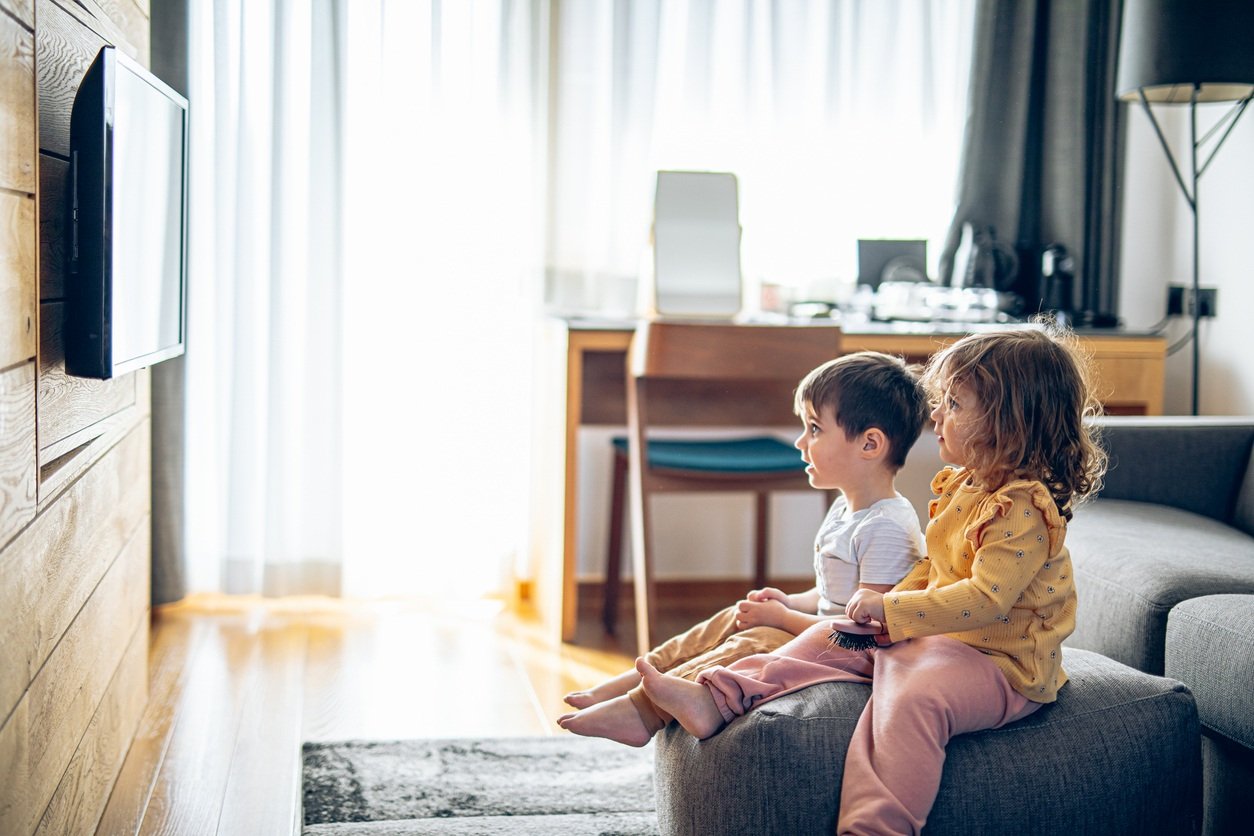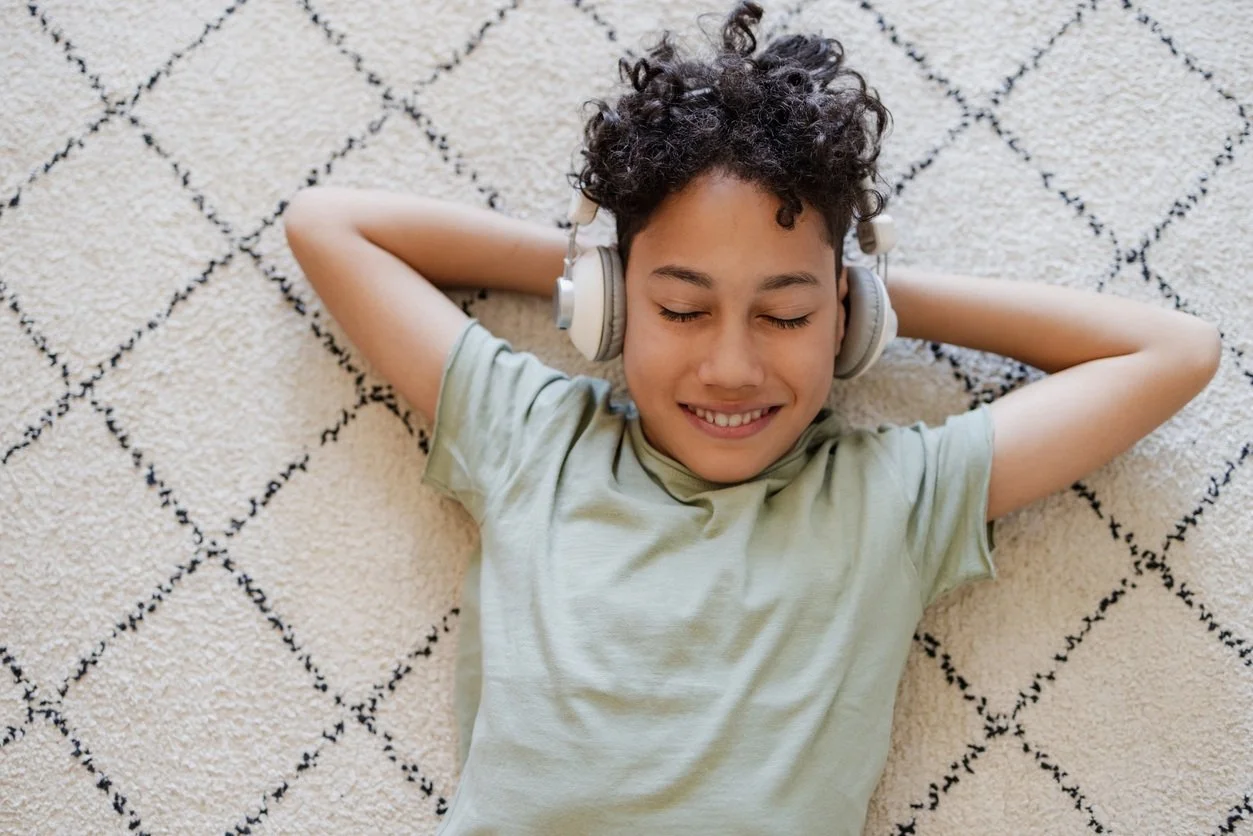Are Audiobooks Good for Kids in 2025? Yes, and here's what the experts say about these 18 benefits
In an age where screens often dominate children's attention, audiobooks are quietly gaining traction as a powerful tool for learning, imagination, and literacy. But are audiobooks good for kids? Educators, literacy experts, and parents are increasingly saying yes. Audiobooks offer children a unique opportunity to engage with stories in a way that supports listening skills, vocabulary development, and a lifelong love of reading—even when a physical book isn’t in their hands.
Below, we’ll explore what professionals say about audiobooks and dive into 18 research-backed benefits they provide to children of all ages.
What Do Professionals Say About Audiobooks for Kids?
Experts widely support audiobooks as a valuable supplement to traditional reading. The American Library Association (ALA) states that audiobooks “enhance literacy development and promote reading engagement in reluctant readers.” According to a 2020 study published in Frontiers in Psychology, children who listened to audiobooks showed comparable comprehension to those who read physical books—sometimes even outperforming them when visual distractions were removed.
Jim Trelease, author of The Read-Aloud Handbook, emphasizes that “listening to audiobooks introduces children to complex vocabulary and advanced sentence structures that they might not yet be able to read themselves.” This expert endorsement sets the stage for exploring the specific cognitive, emotional, and educational benefits of audiobooks for kids.
18 Benefits of Audiobooks for Children
Now that we’ve heard what the experts have to say, let’s dive into the many ways audiobooks can enrich a child’s development. Whether your child is a fluent reader, just starting to explore language, or facing challenges like dyslexia or ADHD, audiobooks offer a range of benefits that support both learning and emotional growth.
From enhancing vocabulary to building empathy and reducing screen time, the advantages of listening to stories are well-documented and wide-ranging. Below are 18 compelling, research-backed reasons why audiobooks can play a powerful role in your child’s education, imagination, and overall well-being.
1. Boosts Vocabulary Development
Audiobooks expose children to a rich and varied vocabulary, often more advanced than the words found in everyday conversation or early readers. A 2019 Scholastic report revealed that kids who listened to audiobooks were introduced to 40% more Tier 2 and Tier 3 vocabulary words than children who only read independently. These exposure opportunities are key for children learning English or those from lower-literacy households. Hearing proper pronunciation also helps children internalize new words more effectively than just seeing them on the page.
2. Improves Listening Comprehension
Listening is a critical skill for academic success and overall communication. Audiobooks train children to focus and retain information through auditory input. A 2021 study by the Journal of Educational Psychology found that students who listened to age-appropriate stories scored similarly on comprehension tests as those who read print versions—showing that audiobooks support meaningful engagement with content. This listening practice builds essential skills they’ll use in the classroom and beyond.
3. Encourages Reluctant Readers
For kids who struggle with reading due to dyslexia, ADHD, or low confidence, audiobooks offer an accessible entry point into literature. According to Learning Ally, a nonprofit supporting students with learning disabilities, audiobooks help bridge the gap between a child’s reading level and cognitive ability, allowing them to enjoy grade-level content. When children can follow along with a narrator, it reduces frustration and builds self-esteem. As author Donalyn Miller notes, “Every child is a reader—some just haven’t found their book yet.”
4. Promotes a Love for Stories and Learning
Audiobooks can ignite a passion for storytelling in children who might otherwise avoid reading. In a survey by Audio Publishers Association, 55% of parents reported that their children were more interested in reading after listening to audiobooks. Narrators bring stories to life with inflection, pacing, and emotion, which can captivate young listeners and inspire curiosity. This emotional engagement lays a foundation for lifelong learning and critical thinking.
5. Supports Bilingual and ESL Learners
For children learning English as a second language, audiobooks serve as an essential language development tool. A study from the University of British Columbia found that bilingual children who listened to audiobooks showed increased proficiency in both vocabulary and grammar compared to peers without audio exposure. Audiobooks help children hear sentence rhythm, word usage, and correct pronunciation, reinforcing language learning through immersion. Parents can even pair audiobooks with physical books for dual-language reinforcement.
6. Builds Critical Thinking Skills
When children listen to audiobooks, they’re required to infer meaning, visualize scenes, and make predictions—all of which promote critical thinking. According to a 2020 Education Week feature, listening to stories without pictures helps develop the brain’s ability to process abstract ideas and draw conclusions. This mental imagery strengthens problem-solving and reasoning abilities, which are crucial for academic success across subjects.
7. Improves Focus and Attention Span
Regular exposure to audiobooks can help improve a child's ability to concentrate. A report from the Journal of Neuroscience found that auditory storytelling activates areas of the brain responsible for attention and sensory integration. This is particularly helpful for children who struggle to sit still for traditional reading. The rhythmic structure of spoken language and the pacing of narration help kids stay engaged and follow a storyline from start to finish.
8. Enhances Pronunciation and Fluency
Listening to fluent narrators provides children with strong models of pronunciation, intonation, and pacing. The National Center on Improving Literacy notes that audiobooks give children a consistent example of expressive reading, which improves their own fluency when they begin reading aloud. For early readers, this modeling helps reinforce natural language rhythms and phrasing, reducing robotic-sounding speech.
9. Makes Reading a Shared Experience
Audiobooks can turn solitary reading into a family or classroom event. Shared listening encourages conversation and bonding, whether it’s a bedtime story or a road trip tradition. According to a 2023 Pew Research survey, families that engage in shared reading experiences—including audiobooks—are more likely to have children who report enjoying books. These experiences also create emotional connections around literacy that can last a lifetime.
10. Provides Access to Advanced Texts
Children who are strong listeners but not yet strong readers can enjoy books that would otherwise be beyond their reading level. For example, a 7-year-old may struggle to read Harry Potter, but they can fully understand and enjoy it through an audiobook. This allows kids to engage with richer narratives and complex ideas earlier in life, helping to expand their worldview and stimulate intellectual growth.
11. Helps Children with Visual Impairments
For children with visual challenges, audiobooks are often the best way to experience stories independently. The National Federation of the Blind emphasizes that audio formats increase accessibility and autonomy for blind and low-vision children. With the right tools, these children can explore the same stories as their peers without relying on Braille or large-print editions, fostering a more inclusive learning environment.
12. Encourages Multitasking with Learning
Audiobooks allow children to engage with stories while doing other activities like drawing, building with blocks, or riding in the car. This dual-tasking can help maximize learning during everyday moments. A 2021 Common Sense Media report noted that children using audiobooks during downtime gained up to 30 minutes more literacy exposure per day compared to those without. It's a smart way to sneak in extra learning without screen time.
13. Reduces Screen Time
In an increasingly digital world, audiobooks offer a screen-free alternative for entertainment and education. The American Academy of Pediatrics recommends minimizing screen time for young children and replacing it with interactive or passive listening experiences. Audiobooks can be a healthier alternative to TV or tablet use, promoting brain engagement without visual overstimulation.
14. Strengthens Emotional Intelligence
Hearing characters express thoughts and feelings helps children recognize and process emotions. A 2018 study published in Scientific Reports showed that listening to emotionally charged narratives activated the brain’s empathy regions more than reading the same stories silently. Audiobooks help children understand others’ perspectives, leading to stronger emotional development and compassion.
15. Improves Sleep Quality with Bedtime Listening
Audiobooks offer a soothing, screen-free way to wind down at bedtime. Sleep researchers from the Cleveland Clinic have suggested that listening to calming stories before bed can lower stress and improve sleep hygiene in children. Soft narration and familiar characters can help create a comforting routine, easing kids into a restful night’s sleep without the stimulation of lights or visuals.
16. Reinforces Classroom Learning
Educators often use audiobooks to supplement lesson plans and support diverse learning styles. According to Edutopia, teachers who integrate audiobooks into their reading curriculum report improved engagement and comprehension, especially among auditory learners. When students listen to audiobooks of classroom texts, it reinforces learning objectives and supports inclusive education for all skill levels.
17. Expands Cultural Awareness
Through audiobooks, children can explore diverse cultures, languages, and perspectives. Stories read by authentic narrators help convey cultural nuance in tone, accent, and expression. For example, a child listening to a folk tale from West Africa or a novel set in India gains a more immersive understanding of that culture. This exposure nurtures global empathy and broadens a child’s social perspective.
18. Fosters Independence and Self-Confidence
Giving kids the option to listen to stories independently can make them feel empowered. Audiobooks allow children to choose their own listening experiences, control the pace, and revisit favorite parts. A 2022 National Literacy Trust study found that 63% of children felt more confident about reading after engaging with audiobooks. This autonomy builds a sense of accomplishment and encourages lifelong learning habits.
Audiobooks vs. Screen Time: A Healthier Alternative
While screens have become a central part of modern life, excessive screen time—especially for children—can come with a host of negative side effects, including sleep disruption, reduced attention span, and increased anxiety. According to the American Academy of Pediatrics, children aged 2 to 5 should have no more than one hour of high-quality screen time per day, yet many exceed this limit due to the widespread use of tablets, phones, and streaming platforms.
Audiobooks present a healthier, developmentally supportive alternative. Unlike screens, which overstimulate with fast-paced visuals and interactive elements, audiobooks engage the brain through active listening, imagination, and concentration. They promote cognitive development without the blue light exposure that can interfere with melatonin production and sleep cycles.
In fact, as mentioned above, audiobooks can be especially effective at bedtime, helping children wind down without the stimulation of flashing lights or scrolling interfaces. They also support multitasking—kids can build, draw, or even move around while listening—making them a flexible option that encourages learning beyond a sedentary screen setup.
By choosing audiobooks over screens during storytime, parents can help reduce the risk of screen-related issues while still giving their children access to rich narratives, educational content, and the joy of storytelling. It's a simple switch with significant long-term benefits.
Yes, Audiobooks are great for kids and expert-backed
When used intentionally, audiobooks are a powerful and enriching tool for children of all ages. From boosting vocabulary and improving listening skills to nurturing empathy and reducing screen time, the benefits of audiobooks go far beyond simple entertainment. Backed by educators, literacy experts, and research, audiobooks can support a child’s academic growth, emotional development, and love of stories—even for reluctant readers or those with learning challenges.
In a world where digital distractions are everywhere, audiobooks offer a meaningful way to help kids slow down, imagine, and learn in a screen-free, engaging format. Whether they’re listening to a favorite bedtime tale, exploring a new cultural perspective, or following along with a school text, audiobooks give children the chance to connect with language in a way that’s flexible, accessible, and fun.
So if you're wondering whether audiobooks are good for kids, the answer is clear: not only are they good—they're a smart, research-supported addition to any child’s daily routine.
Related Blog posts
The Starglow Parenting Weekly
Your shortcut to purposeful parenting.
Join thousands of thoughtful parents who get our weekly roundup of tips on screen time, mindful discipline, and finding balance—delivered every Sunday morning.





